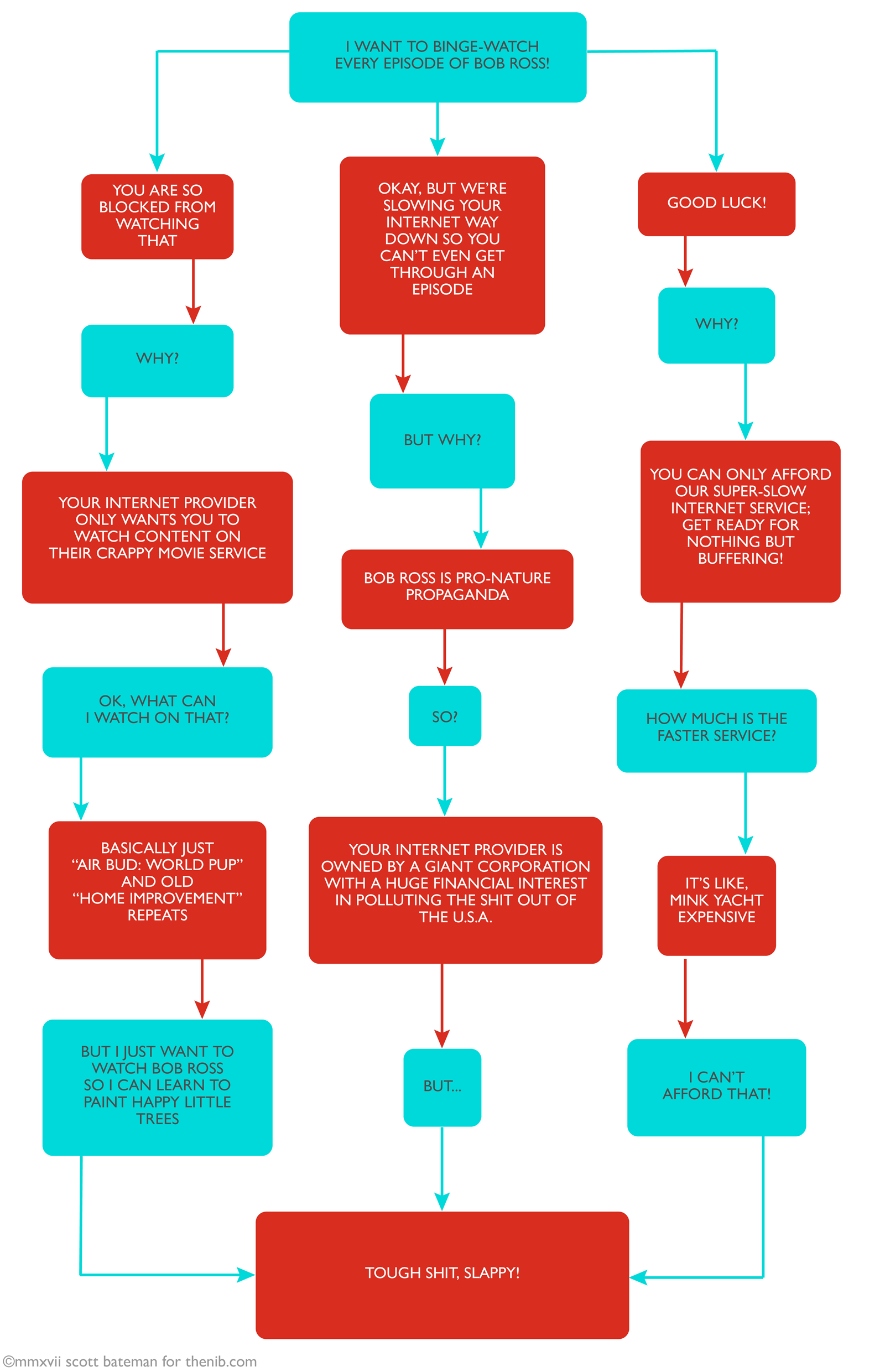n2doc
n2doc's JournalIn final act, Cordray blocks Trump from naming his successor at consumer protection bureau
Source: Politico
Consumer Financial Protection Bureau Director Richard Cordray on Friday appointed the agency’s chief of staff, Leandra English, as the CFPB’s deputy director, establishing her as his successor when he steps down at the end of the day.
The move appears designed to thwart any move by President Donald Trump to name another temporary official to head the controversial agency. Trump has been reported to be considering White House Budget Director Mick Mulvaney for the role.
The 2010 Dodd-Frank Act, which created the CFPB, explicitly says the consumer bureau’s deputy director shall “serve as acting Director in the absence or unavailability of the Director.”
Trump will likely now have to nominate someone who must be confirmed by the Senate before he can oust English.
Read more: https://www.politico.com/story/2017/11/24/richard-cordray-successor-cfpb-leandra-english-259612
Opioid Crisis driven by shady Pharma Co's
Many say the opioid crisis that has killed more than 183,000 Americans since 1999 is driven by crooked pharmaceutical executives who have done just about everything, legal or otherwise, to convince the public that opioid painkillers are safe. Even President Donald Trump, who recently declared the epidemic a public health emergency, said companies that make the potent and highly addictive painkillers are responsible for the surge in deaths.
Fentanyl is one of the most dangerous opioids on the market, 50 times more potent than heroin. The U.S. Centers for Disease Control and Prevention reports that overdoses on this synthetic opioid have increased 540 percent in the past three years, and many say the drug is responsible for the current epidemic. Insys Therapeutics, one of the companies that produce a form of fentanyl, is now mired in an ugly legal battle after multiple executives—including its founder, John Kapoor—were arrested on conspiracy charges in late October. Attorneys general in New Jersey, Arizona, Oregon, Illinois and Massachusetts have filed lawsuits claiming the company plotted to illegally boost sales of its drugs. In all of the lawsuits, Insys is charged with lying to insurance companies, fabricating information about patients and providing incentives to physicians to prescribe the drug.
Insys Therapeutics produces Subsys, a powerful fentanyl-based liquid that earned approval from the U.S. Food and Drug Administration in 2012 specifically for use by cancer patients with pain that doesn’t respond to other painkillers—what’s known as “breakthrough cancer pain.” Subsys is a fast-acting spray used under the tongue; the mucous membranes beneath the tongue have an abundance of capillaries, so the medication is absorbed directly into the bloodstream without needing to go through your digestive system. This delivery method is highly effective, but it means that overdosing on Subsys is far too easy—and possibly just a few accidental sprays away.
Ongoing federal investigations suggest Insys ran an elaborate scheme to push the drug on non-cancer patients—what’s called “off-label use”—despite the fact that the company has not submitted clinical data to prove Subsys is safe and effective to manage pain not related to cancer. The U.S. Attorney’s Office in the District of Massachusetts charged Kapoor with “leading a nationwide conspiracy to profit by using bribes and fraud to cause the illegal distribution of a fentanyl spray.” The charges include racketeering, mail and wire fraud, and violation of a federal law passed in 2014 (known as the Anti-Kickback Statute) that prevents drug companies from providing large incentives to physicians for prescribing their drugs. Kapoor resigned from the company’s board of directors in late October, but said in a statement, “I am confident that I have committed no crimes and believe I will be fully vindicated.” (He pleaded not guilty at his arraignment in Boston on November 16.)
more
http://www.newsweek.com/opioid-crisis-driven-shady-drug-company-tactics-716856
What will happen when the world no longer has water?
Summer is always scorching in Amman, Jordan, but last July was particularly brutal for Tarek el-Qaisi, a mechanic who lives with his family in the eastern part of the city. A gang of thieves tapped into the power lines across from his home, and the electricity provider cut off the entire street for a fortnight. With no fans or fridges, the treeless, concrete neighborhood felt like a blast furnace. The next day, a nearby sewage pit backed up, enveloping his apartment with a sickening stench. The flies loved it, but all three of el-Qaisi’s school-age children got sick. By the time his boss lowered his salary, citing slow business, the young mechanic thought nothing could faze him. “It’s hell,” he says, “but it’s not like we have a choice.”
The sudden loss of his water supply, however, has left him nearly hopeless. With no municipal water access, el-Qaisi and his neighbors have always had to rely on private tanks to service their cisterns. But recent construction at the foot of the hill on which they live has severed that lifeline. The whale-size trucks can no longer get close, so residents are now dependent on what they can carry up the steep, uneven roads. Unable to properly wash their clothes or even clean dishes, they’re slowly reconciling themselves to a world with almost no water. “I come home dirty and sometimes can’t wash,” says el-Qaisi, his arms and face flecked with sweat and motor oil. “It’s humiliating. No one should have to live like this.”
Without drastic action, many Jordanians may share his plight. The Jordan River, the country’s lone waterway, is dirty and depleted, while some of its aquifers have been pumped almost beyond repair. The nation’s annual rainfall is set to slide dramatically due to climate change, even as its population continues to swell. Jordan is too poor to turn to costly, large-scale desalination—or fix its leaky infrastructure. And the country’s population growth shows few signs of slowing, so it can’t fall back on water imports, as some lightly populated Pacific and Caribbean island nations have done. Water shortages have gotten so bad, they’ve already sparked clashes between refugees and native Jordanians, and the officials charged with catering to booming demand with a shrinking supply are beginning to panic. “We have to look outside Jordan,” says Ali Subah, secretary-general for strategic planning at the Ministry of Water and Irrigation. “There are no more water resources here.”
Jordan could be the first country to run out of water, but it likely wouldn’t be the last. Globally, water demand is forecast to rise by roughly 50 percent by 2050. And the situation is dire on the supply side too: 21 out of the world’s 37 biggest aquifers are already moving past their tipping points, according to NASA, in part due to over-extraction for drinking water and mining. Meanwhile, global warming appears to be reducing rainfall in some places. Two out of every three people will face water shortages by 2025, the World Meteorological Organization says, and hundreds of millions more might grapple with dangerously poor water quality.
more
http://www.newsweek.com/2017/12/01/what-happens-world-without-water-jordan-crisis-717365.html
Friday Toon Roundup
Trump



Moore


Harassers

Bad

FCC


Thanks

Generational fighting

Black Friday



Drumph has spent nearly 1/3 of his presidency at his own properties
Thanksgiving is Trump’s 100th day at a Trump property as president
BY AVERY ANAPOL - 11/23/17 07:58 AM EST
Thanksgiving Day will mark the 100th day President Trump has spent at one of his properties since taking office.
The Trump family is spending Thanksgiving weekend at his Mar-a-Lago resort in Florida. Thursday is the 28th day he is spending at that property in particular, according to the New York Times’ tracker.
The president has spent most of his property visits–39 days–at the Trump National Golf Club in New Jersey, according to the tracker. Mar-a-Lago is his second-most visited property, and he has held several official events and meetings there.
more
http://thehill.com/homenews/administration/361648-thanksgiving-is-trumps-100th-day-at-a-trump-property
Grifter
Profile Information
Gender: Do not displayMember since: Tue Feb 10, 2004, 01:08 PM
Number of posts: 47,953















